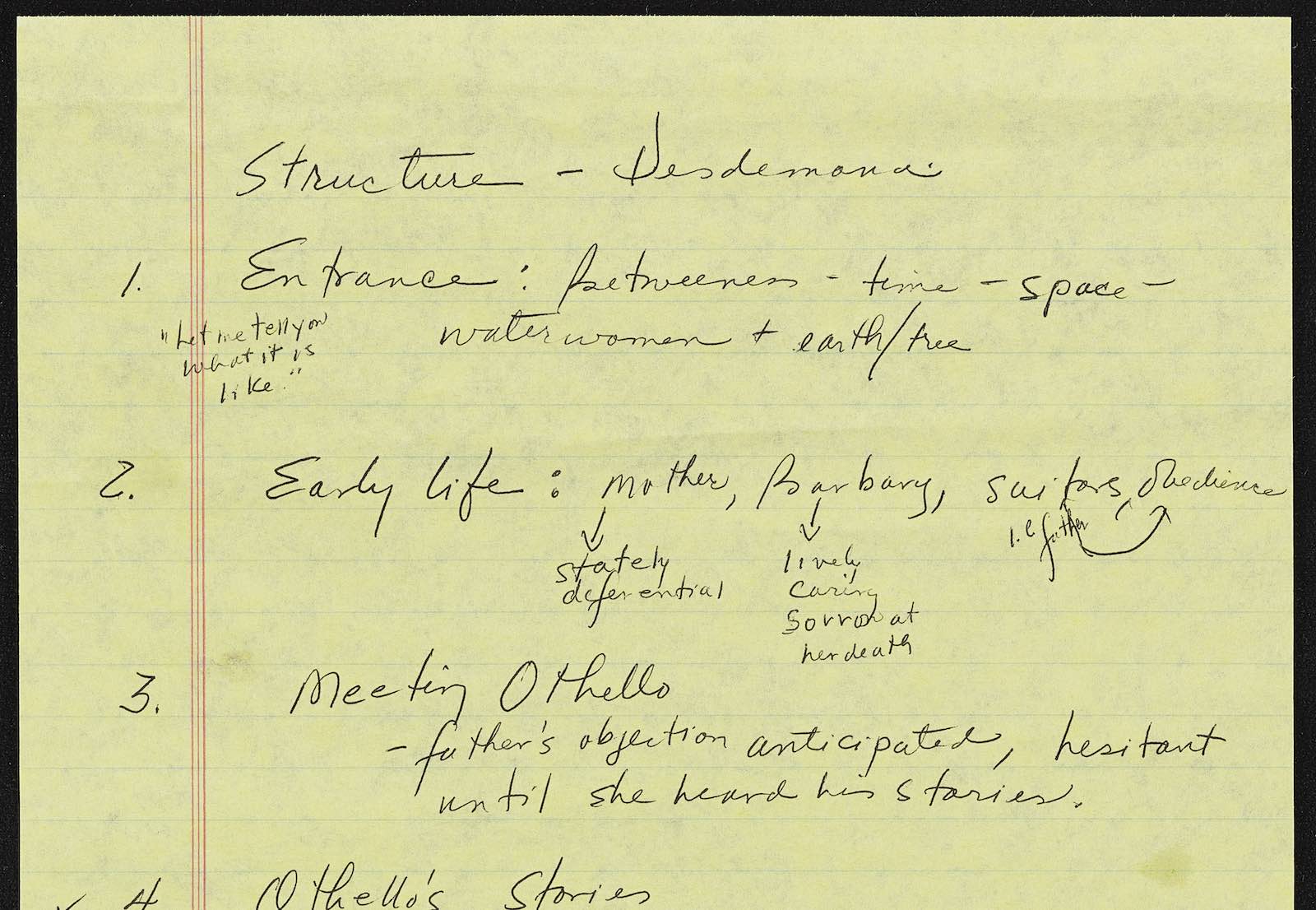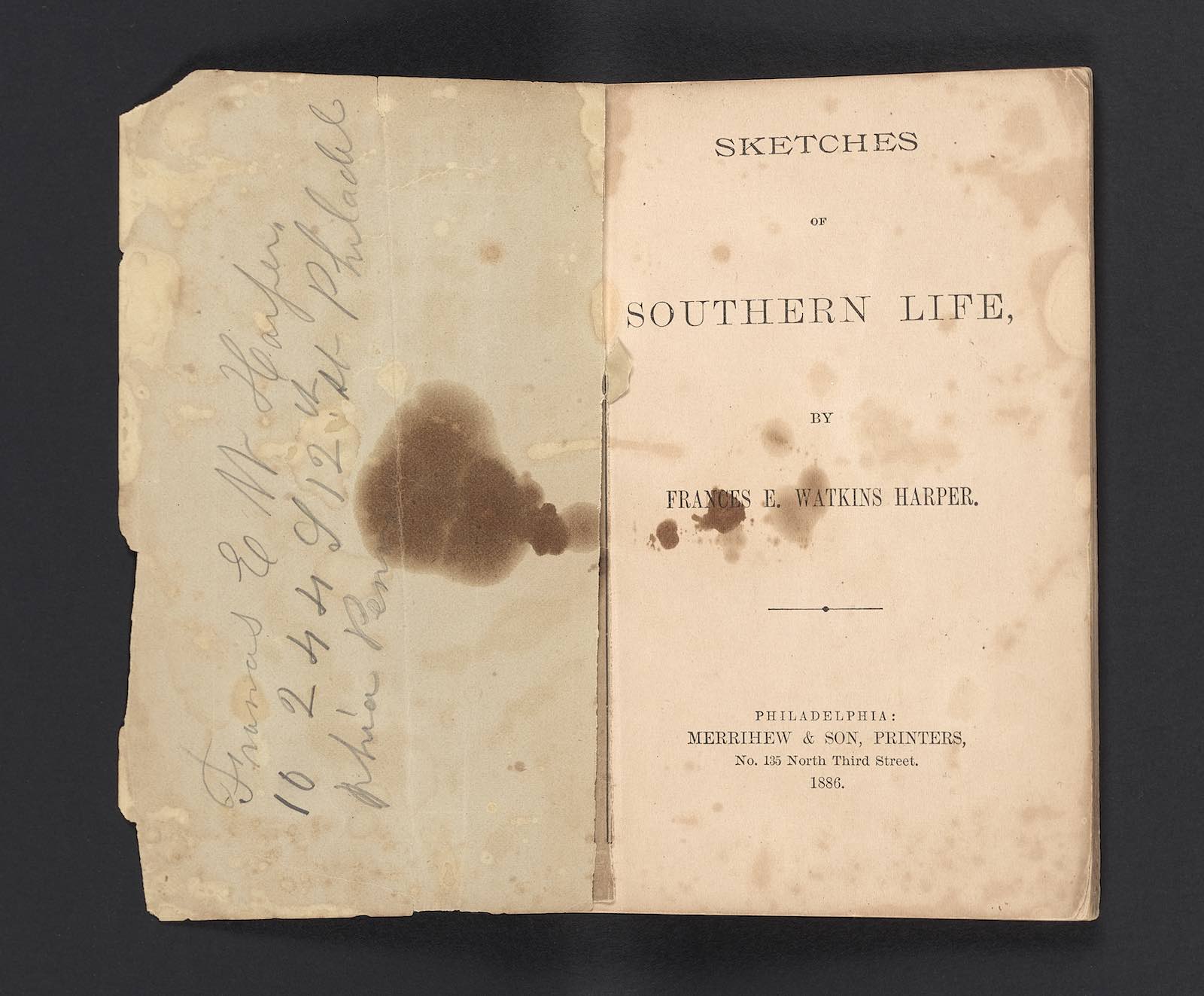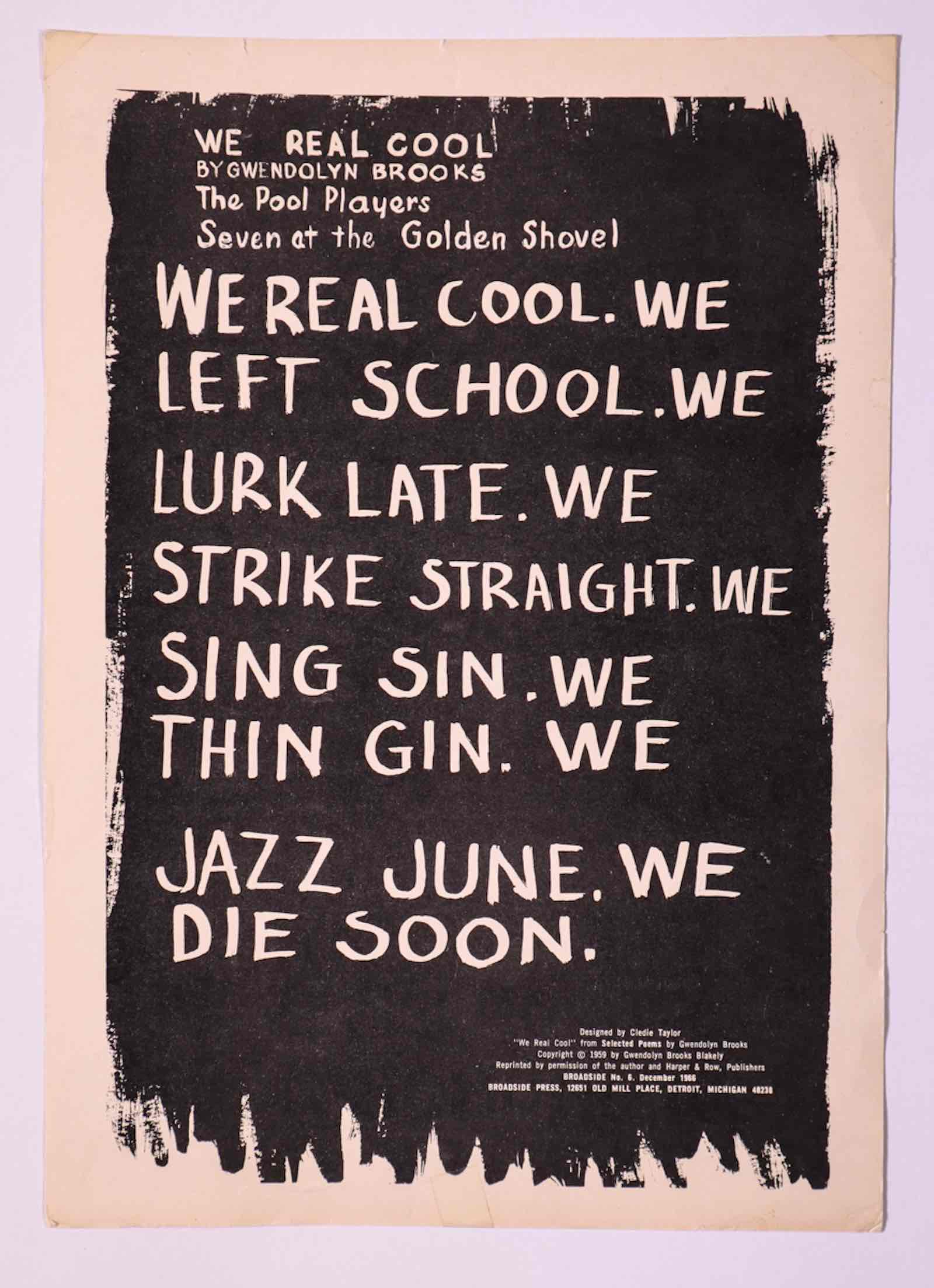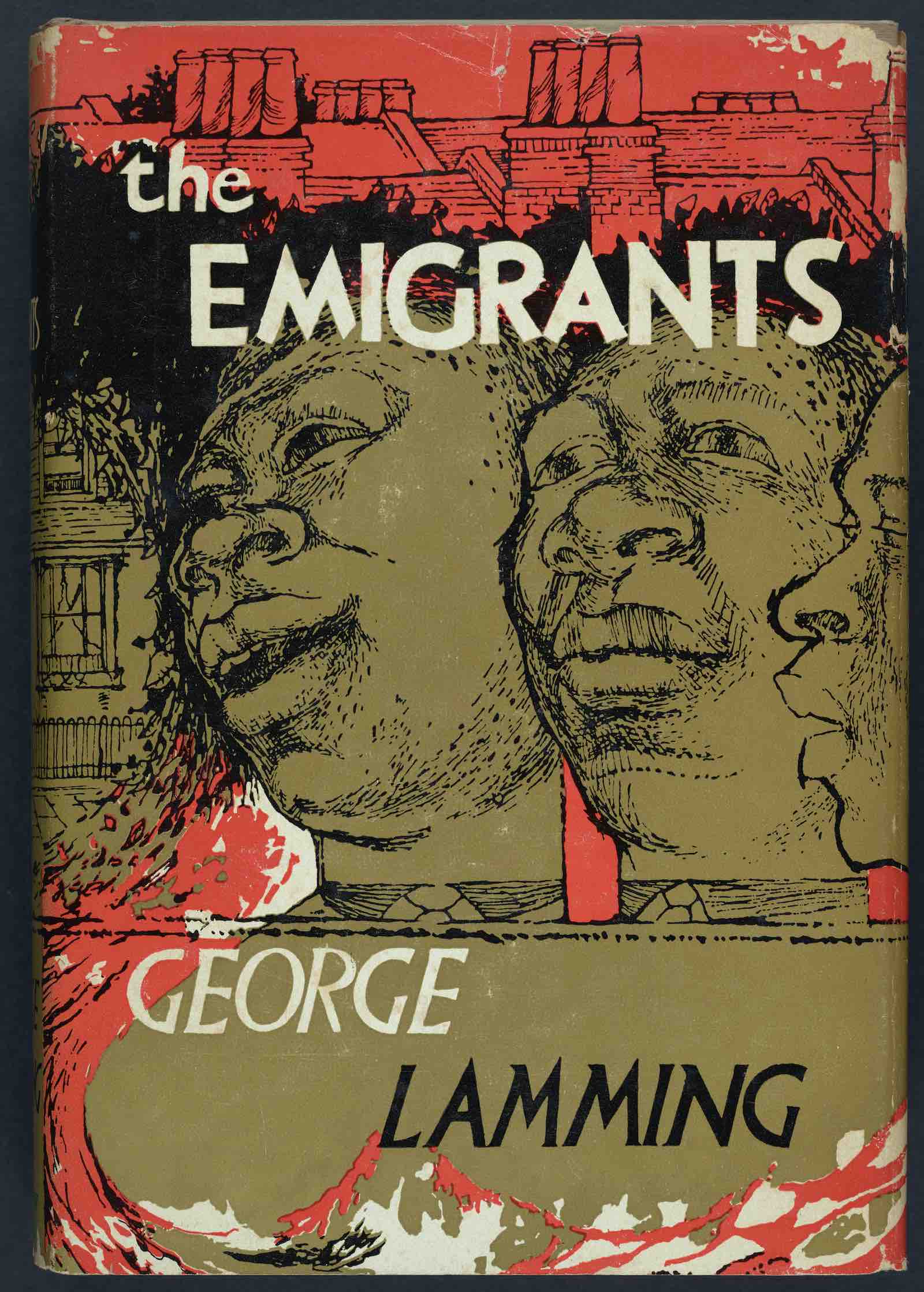The exhibition gains contemporary relevance through the inclusion of 20th century authors, book owners, and publishers up to the lifetime of Morrison, including Maya Angelou, Sylvia Beach, George Lamming, James Baldwin, Gwendolyn Brooks, Carlos Bolusan, Lorraine Hansberry, Chinua Achebe, and Virginia Woolf, amongst others.
“During the 1920s, two independent publishing ventures played significant roles in the shaping of modern literature," said Garcon. "Sylvia Beach’s Paris bookshop, Shakespeare and Company, which emerged as a leading center for literary life, later establishing a publishing office, and, the Hogarth Press, established by Virginia Woolf and her husband, Leonard in 1917, which provided creative leverage for authors pursuing experimental literary projects. Both publishing enterprises took on significant risks, gave opportunities to nonconformist authors, resisted mainstream publishing norms, and prioritized literary excellence over monetary rewards.”
Bridging the 400-year period between Shakespeare and the 20th century writers and books, the exhibition spotlights diverse ways in which playwrights, poets, novelists, illustrators, publishers, and readers from the English-speaking world are drawn into conversation.
“Three great American poets from the 19th century represent the distinctive and contrasting roles writers played in relation to their printed works,” said Swift. “Walt Whitman participated in every aspect of the production and marketing of his poetry, reshaping and repackaging Leaves of Grass through many editions. Frances Watkins Harper sold her inexpensive volumes individually as she toured the country as a lecturer, converting the proceeds into activism, while Emily Dickinson, too reticent to publish, bequeathed her poetic legacy to later editors to discover and excavate afresh.”
The exhibition opens September 6 and runs through December 10. A reader’s theater, featuring actors reading selected texts from the exhibition is being planned for October. Additional programming including panel discussions, gallery shows, and talks is being planned to take place throughout the fall.
Princeton Celebrates Shakespeare First Folio with Literature Exhibition
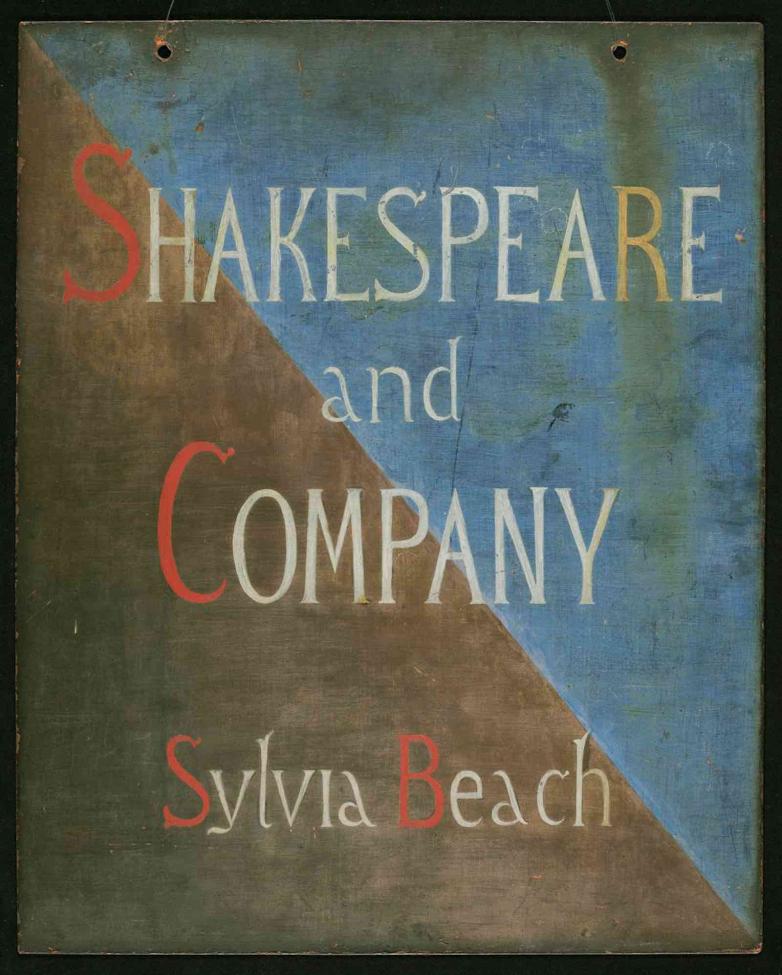
Shakespeare & Co. paianted storefront sign by Marie Monnier-Becat (1894–1976). Paris, ca. 1920.
In honor of the 400th anniversary of William Shakespeare’s First Folio of 1623, Princeton University Library (PUL) will present In the Company of Good Books: From Shakespeare to Morrison in its Milberg Gallery.
Curated by Jennifer Garcon, Librarian for Modern and Contemporary Special Collections, Gabriel Swift, Librarian for American Collections, and Eric White, Scheide Librarian & Assistant University Librarian for Special Collections, Rare Books & Manuscripts, the exhibition will showcase Princeton’s diverse collection of English literature and many of the writers and readers who brought life to English literature around the world.
In addition to three copies of Shakespeare’s First Folio of 1623, highlights include:
- a wide-ranging selection of writers’ working manuscripts
- books annotated by authors, inscribed for friends, or collected by admirers
- samples from authorial archives
- publishers’ correspondence
- novels read affordably as serials; portraits of writers and readers
- original cover art
Among rarely seen treasures are a 1598 first edition of Shakespeare’s Love’s Labour's Lost and Toni Morrison’s handwritten manuscript drafts of Desdemona. Many works will be on display for the first time, including several recent acquisitions made by PUL.




